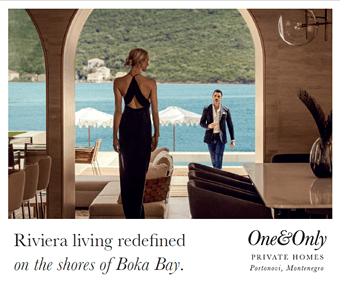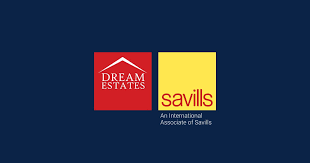Go digital Croatia
GO DIGITAL – NOT JUST A TREND BUT THE KEY TO THE SURVIVAL OF TOURISM IN CROATIA
BY GUEST WRITER FOR THE COLLECTION,MARIJA CRNJAK
If we were to choose which trend in the tourism industry has been accelerated most dramatically by the COVID-19 pandemic – and one which is expected to continue to accelerate after the crisis – then certainly it would be digital transformation. Technologies such as artificial intelligence (AI), the Internet of Things (IoT) and automation represent the next stage after digitization, which will help to improve business efficiency and profitability, allow employees to ultimately focus on content creation instead of paperwork and processes, as well as enhancing the experience of guests, who will no longer be forced to wait in line at hotel reception, with their favorite cocktail already awaiting them at the bar, and where the search for their next vacation is a piece of cake, because the algorithms already know what you are dreaming about.
Concurrently, the tourism industry, including the hotel sector, is lagging behind some other sectors, such as finance, in the process of digital transformation at the global level. As it turns out, there will be a great deal of work in Croatia not only for digital technology consultants and corporate IT specialists but also for most tourism professionals who are increasingly part of the development team, because this phase of development means that the IT sector no longer sits in a single room and smartphones are no longer used only by Generations X, Y and Z, but also by their grandmothers. The public sector also has much work to do because the existing legislation has not yet created an ecosystem that will facilitate digital transformation, and the IT sector has repeatedly warned that the current internet infrastructure in Croatia is not yet sufficiently developed.

Photo Courtesy of Bluesun Hotel Berulia
The leading regional business consulting firm, Apsolon, conducted a survey of the digital readiness of hotels in Croatia, with the aim of gaining insight into the level of digitalization across the hotel industry and the plans for its transformation. The findings of the survey were presented by the Executive Director, Andrijana Parić, at the recent Croatian Tourism Days event (CTD).
“Customers today want their problems solved in the shortest possible time and expect companies to be available through a variety of applications. They want more comfort, control and personalization. Predictive analytics allows hotels to anticipate their guests’ needs and to adjust their offer accordingly. However, the availability and application of technology are not sufficient for a successful digital transformation. In order to achieve concrete results, this must be integrated into business processes and strategy,” Parić explained. She also noted that digital transformation in the tourism industry correlates with the European Recovery and Resilience Plan and the new programming period, which focuses on the Green and Digital transition. Of the 2.2 billion Kuna from the National Recovery and Resilience Plan, which is allocated to tourism, as much as 1.3 billion will be directed towards strengthening sustainability and encouraging the Green and Digital transition of entrepreneurs in the tourism industry.
In the Apsolon survey, 62% of respondents in the tourism industry confirmed that they have been working on digital transformation at their hotels; 72% of respondents rated the current state of digital transformation in the Croatian hotel industry as a mediocre 3, and nearly 20% rated it as only 2. Slightly under half of the respondents, 44% of them, believe that their hotel/company will see the benefits of a successful digital transformation over the next 1-3 years.
The companies polled who have made some progress towards digital transformation mostly reported the use of new technologies or market trends, and the digitalization of business processes; 50% cited user experience optimization, and as many as 45% of respondents reported an increase in revenue as a result of digital transformation. The portion of investment in IT in the future remains relatively low and accounts for only 4% of total revenue, while the major area of investment is planned to be security; 62% of hotel plans to boost digital customer engagement, 57% plan to strengthen the existing network infrastructure, 50% of hotels plan to further invest in analytics, and 25% plan to allocate funds for investing in the Internet of Things (IoT).
Fortunately, there are some examples of good practice to learn from, as well as the initiative of Smart Tourism Development that will also help us as a destination.

Photo Courtesy of Valamar Riviera (Hvar)
Valamar Riviera was the first large tourism company in Croatia to start seriously dealing with direct sales and distribution, which has become crucial in this business, especially during the ongoing pandemic. Valamar strategically embarked on the digital transformation journey three years ago, and the whole process was described by their Director of Digitalization, Roberto Gobo, at the CTD’s panel on New Technologies organized by the Croatian Chamber of Commerce.
“It is a process that must have broad support, from the management, administration, employees and partners. It is the only way to successfully achieve transformation within the company. Valamar has aligned the digital strategy and the company’s strategy. We identified our main goals and tried to set 4 strategic topics which we will address over the next three years, from 2019 to 2021, such as attracting guests and ensuring their loyalty, guest engagement, business processes and IT, and organizational culture,” Gobo said.

Photo Courtesy of Valamar Riviera (Hvar)
In the context of these strategic topics, Valamar has carried out various projects over the year, either those that transform the company and bring a certain new value or regular projects, such as Wi-Fi as part of the infrastructure. They have invested over 70 million Kuna in Wi-Fi infrastructure alone over a period of five years, because this was a precondition for their digital transformation. Currently, the revenue from Valamar’s direct channels in relation to the total revenue amounts to 60 percent, most of which is accounted for by digital channels, the Internet and Valamar’s reservation center.

Photo Courtesy of Valamar Riviera (Hvar)
“We enabled our guests to do digital check-in, self-check-in and provided an electronic registration card at our front desks even before the Covid-19 pandemic, in 2019. We were prompted by the fact that it is important to ensure complete guest satisfaction immediately upon arrival. We can describe digital transformation through a specific example: I arrived yesterday at the hotel by car and found that the check-in was quick, the rooms spacious, the breakfast excellent and the staff friendly, which all signify that it is a top hotel. If we looked at it from the perspective of digital transformation, from the moment a reservation was made for me I would expect to receive a text message on the phone informing me that I could do online check-in. When I got the room key and wanted to park the car, the key could not open the ramp. If they had entered my registration during the check-in, the ramp would have opened automatically. We do such things in our facilities which shows that digital transformation is a simple matter if we focus on the experience of our guests, employees, or on improving the business process. This may seem like a trifle, but it is extremely important in the context of guest satisfaction and their desire for an ‘incredible’ experience,” Gobo explained. When it comes to the digitization of business processes, for example, Valamar has introduced online collaboration, so that each document, presentation and table, is corrected online, and everyone has access to the latest status in real time. Valamar has at least 15 mutually integrated platforms working with guests.

Photo Courtesy of Bluesun Hotel Berulia
Bluesun Hotels & Resorts started working on their digital transformation even earlier. Ivana Kralj, Head of Quality Management, explained to us exactly how it works.
“The mOperation application was introduced in 2014 and operates as one of the best innovative solutions of the Group. It is a tool that serves the housekeeping department, the reception desk, the technical service, the minibar and the kitchen. The app includes quick and easy planning of daily hotel housekeeping schedules. Housekeepers receive their room schedule on their mobile devices, mark the room as cleaned once they’re done, report possible maintenance issues in the rooms, track the use of the minibar, and can note lost and found items. The registration of each issue lands in the mobile phone app of the technical service. Each time a guest uses the minibar, it gets marked on the mobile phone of the person in charge, so that they restock only the rooms they need to, thus avoiding the need to enter all the rooms. Lost and found items are also reported through the app and the reception staff can track them in real time on their screens. This app allows the kitchen department to file complaints regarding produce delivered by suppliers. The system records both a picture and a description of the complaint, which is automatically visible to the central purchasing department. They in turn forward them to the supplier meaning that everything takes place in real time.

Photo Courtesy of Bluesun Hotel Berulia
At the same time, through the mOperation system, we get very valuable statistics and comparisons between hotels, such as the average time of room cleaning, the amount of daily and general cleaning, the average time taken by housekeepers, the number of checks, and so on,” Kralj pointed out.
Two years later, the company introduced the mDining app, which serves to keep track of guests in the hotel restaurant, allowing staff to have the exact status of meal orders at all times. In addition, this system enables automatic payment for meals through a guest’s electronic signature. The gastro project is a system that was introduced by Bluesun ten years ago. It is the company’s own IT solution that enables them to carry out a number of operations across kitchen management, from the automatic ordering of raw produce to the return of an unconsumed meal. The system takes care of ordering the necessary produce, creates work orders outlining the list of required activities, and keeps an electronic record of all material movements.
There is also the mStock application for managing supplies in the kitchens via tablets, where the supplier’s purchase orders are visible, and the stock status is immediately updated.
The latest Bluesun solutions relate to customer relationship management. The mCheck in/mAnkete application was introduced in 2020 so as to enable guests to quickly and easily give their GDPR consent and set up user experience surveys. By completing the survey, guests are offered the opportunity to participate in a prize draw.

Photo Courtesy of Bluesun Hotel Berulia
“Lastly, we introduced the Self-Check-In application in 2021 to enable guests to do contactless check-in before arriving at the hotel. This app allows guests to make a complete check-in 24 hours before arrival, so that all they need to do is pick up their room key at the reception desk, as well as to send an email about the exact time of arrival and express any special requests,” Ivana Kralj said.

Ivana Kralj, Head Of Quality Management at Bluesun Hotels & Resorts
The pandemic has also accelerated all the digitization processes affecting the Novigrad-based company Aminess Hotels and Camps, which have been intensified in recent years with the aim of becoming more efficient, from the CRM system and the Loyalty Programme onwards.
“Tracking trends and guests’ needs are the motives for our increased and continuous investment in digitized processes through all the departments of Aminess Hotels and Campsites.

Photo Courtesy of Aminess Port9 Resort
The focus here is on further improving the guest experience on our website, integrating all our communication channels and further developing all the business processes of the company. This includes the most advanced technologies and ideas, such as constant UX/UI innovations, setting up multi-channel communication and constant improvements in profiling our guests in order to achieve the highest levels of satisfaction,” said Mladen Knežević, Sales and Marketing Director at Aminess Hotels and Camps.
For Aminess, the “Customer journey” is a key step in their further development. In collaboration with their partners, they have achieved a complete UX/UI redesign of the Aminess website. In particular, their publicly available statistical indicators and internal analyses indicated that websites in the tourism and hospitality sector receive the largest number of views via mobile devices, but most users still make reservations using desktop computers. The UX/UI redesign of the Aminess websites primarily produced a user-friendly and fast mobile interface within which guests feels safe enough to make their reservation “on the go” via their mobile device. Integrating the reservation system with the Aminess Loyalty Programme application together with the Aminess websites, they optimized, and to some extent personalized, user movement from their first arrival on the website through to the very end of the process, which results in a reservation, with a special focus on building digital loyalty for each guest.
Furthermore, the newly established processes for smart marketing communication automation, which engages with guests based on their previous experiences, expressed interests and selected preferences, has been integrated into the Customer Relationship Management System, allow Aminess to regularly communicate with guests, subscribers and members of the Aminess Loyalty Programme, in accordance with the GDPR regulations, and to provide them with the information they want, when they want it and in the way they want it.

Photo Courtesy of Aminess Port9 Resort
Aminess monitors guest satisfaction through personalized questionnaires. In this way, guests are only asked relevant questions, depending on the type of accommodation and facility in which they stayed, and the services they used during their stay, with automatic notifications to hotel staff when needed.
Aminess has also introduced online check-in, and for those who have already arrived at their hotel or camp, they have prepared a Self-order option which facilitates the ordering of drinks or meals, including delivery. A mobile and web app is planned for 2022, which will enable the group to communicate useful information in segments.
“Cooperation with digitalization experts was necessary in order to achieve the desired results and provide our employees with new tools allowing them to better anticipate the guests’ needs, who also appreciate this change. Targeted investment in what both trends and our needs dictate is a key step towards success,” stated Neven Cvitković, Head of IT at Aminess Hotels and Camps.
Admittedly, not everything is the responsibility of individual companies or company owners. Goran Mrvoš, the President of the IT Association of the Croatian Chamber of Commerce and the Director of Infosit, explained that the legislation in Croatia must be changed in order to create an ecosystem conducive to these processes.
“We have certain obligations stemming from the past, which are no longer applicable and which prevent digital transformation, meaning that we still need to have signatures and scan IDs; while the rest of the world allows people to open bank accounts online, we still have to come in person to the office,” Mrvoš said.

Goran Mrvoš, the President of the IT Association of the Croatian Chamber of Commerce and the Director of Infosit
Precisely for the purpose of accelerating all these processes, at the end of last year, Infosit launched the Smart Tourism initiative, which aims to combine and connect several existing solutions. It is a network of companies specializing in tourism, which are jointly developing innovative digital solutions, with the aim of ensuring smart and strategic management in tourism. The long-term goal of the Smart Tourism initiative is to encourage destinations to embrace digital trends and to be ready to implement them in long-term strategies on which they will actively work.
“In Croatia, we have a number of companies that create quality solutions for the industry, which have their own standalone value, but the greatest value will be their interconnectedness, which will allow guests to have a unique experience, and mean that the tourism industry does not have to input more information to keep them updated. We can be innovative in terms of process, but we do not have time to reinvent the wheel and create something completely new. We are going to connect in order to provide more value,” Mrvoš said.







